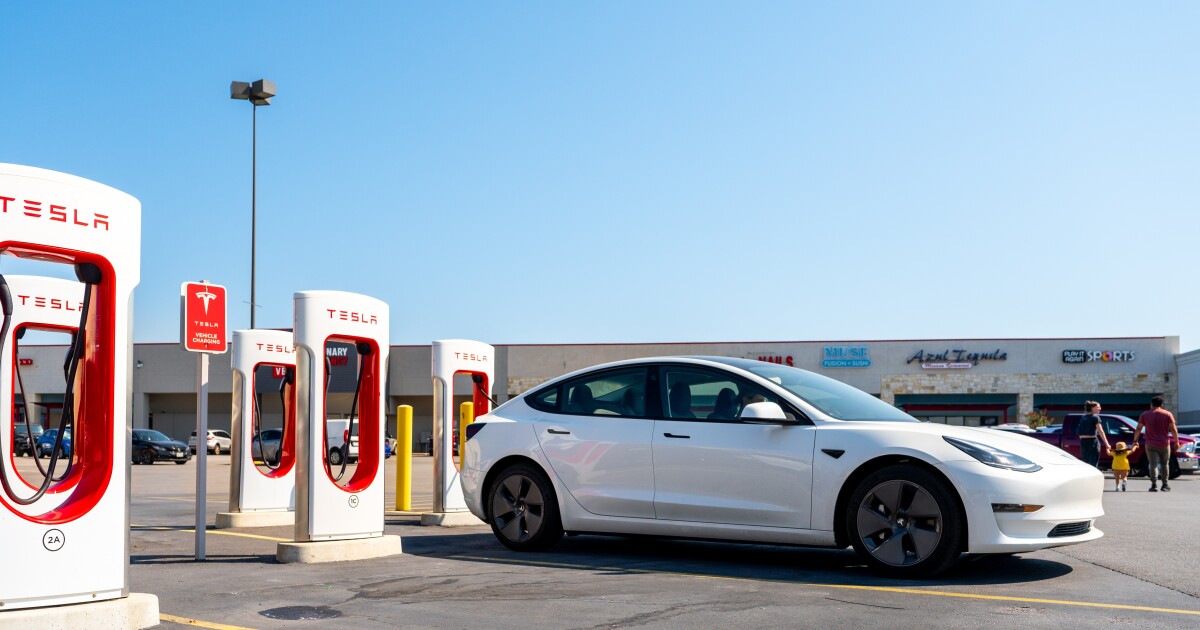Everyone knows that electric vehicles are supposed to be better for the planet than gas cars. That’s the driving reason behind a global effort to transition toward batteries.
But what about the harms caused by mining for battery minerals? And coal-fired power plants for the electricity to charge the cars? And battery waste? Is it really true that EVs are better?
The answer is yes. But Americans are growing less convinced.
The net benefits of EVs have been frequently fact-checked, including by NPR. "No technology is perfect, but the electric vehicles are going to offer a significant benefit as compared to the internal combustion engine vehicles," Jessika Trancik, a professor at the Massachusetts Institute of Technology, told NPR this spring.
It’s important to ask these questions about EVs’ hidden costs, Trancik says. But they have been answered “exhaustively” — her word — and a widerange of organizations have confirmed that EVs still beat gas.



it’s not just capitalism, the US is a very spread out place compared to most other countries. if you want everyone to use mass transit you’re asking them to either 1) move into the city for similar commute times, or 2) spend an inordinate amount of time riding busses around the suburbs for the same distance commute. Neither are good solutions.
And also we have solved the “getting to work” debate with teleconferencing. why should we need cars or an even bigger mass transit system when most people can simply work from home?
That’s the point, nobody wants to move people in the middle of nowhere to buses. Everyone wants these people to move to buses:
That’s like a half-full train’s worth of people if they single-seat, which they do, or 5-10 buses.
Imagine how cooler the place would be if that 16 lane road would be a 2 lane train track.
Eh there are plenty of places that have less population density than the US but they do just fine with transit. It might be true that most US cities are poorly designed for transit, but the density isn’t a the reason.
Someone has to see Not Just Bikes. Capitalism was the driver to the sub-urbanization process made after WW2 in the US, as a national economic policy to orient growth around building detached houses, private cars and suburban infrastructure (and secondary security considerations of reducing losses and damage in case of nuclear bombs in cities). The US was not a '‘very spread out’ place before WW2 (i.e. for the vast majority of its history), in fact cities like San Francisco were world leaders in mass transit, and trains were the axis of transportation of both people and goods (even existing suburbs were connected to trains, in whatever shape and size they come). The us cities spent and spend an enormous amount of money and debt to pay for all the road infrastructure, that even neoliberals say it’s not economically sustainable, and that money can also be better used paying for higher quality mass transit, not the tertiary thought they give it now (horrible buses that stay in traffic with the cars for the poor people that can not afford a car). Most people do not work remote all the time, even flexible / hybrid workers need to transport themselves some trips per week. Not to mention that full remote work may over time trickle to foreign countries that do the service cheaper, and the work remaining onshore is work that the owners need-want at least hybrid or on site workers.
no kidding, the population was also like a third of what it is now.
yeah, mass transit within cities is a great idea and should be used as much as possible. I am not shitting on the general idea of mass transit. what I’m saying is, in the context of a practical daily commute, mass transit only works to a point, and a LOT of people live beyond that point.
again, I’m not saying mass transit should never be used. what is the cost:benefit for the infrastructure to cover out to the suburbs? how much time is added to very long trips, and are people willing to deal with that?